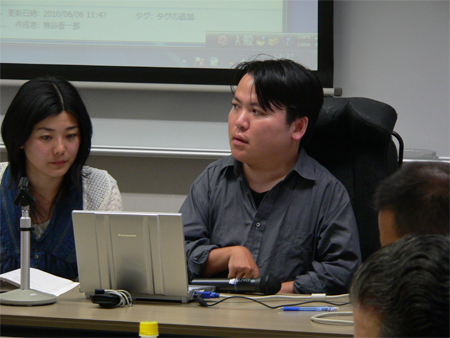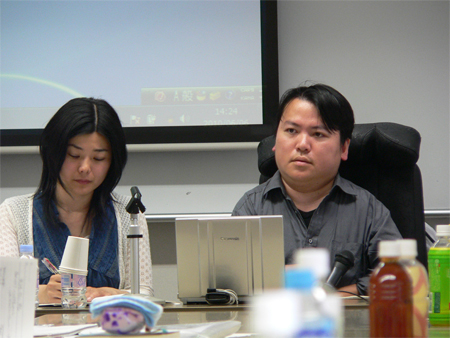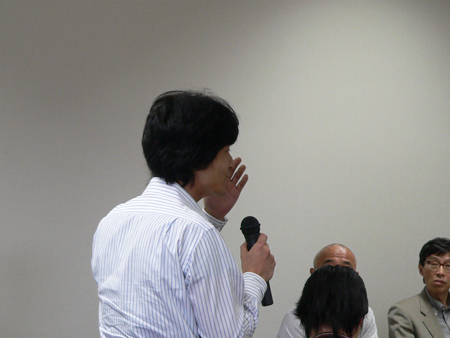[Report] The 1st Meeting of the Study Group "Communicatoin, Rehabilitation, and Phenomenology"
The 1st Meeting of "The Study Group of Communicatoin, Rehabilitation, and Phenomenology" was held on June 6, 2010. This study group is organized by the UTCP mid-term program “Science, Technology, and Society”.
ISHIHARA Koji, the chair of the “Science, Technology, and Society” program, began by explaining the purpose of the study group: to connect divergent studies concerning the communication ability (of people with developmental disorders) and rehabilitation such as patients’ first-person, theoretical, and clinical studies, and the development of assistive technology.
Following the introduction, the first speaker AYAYA Satsuki presented her latest research. She is suffering from Asperger syndrome and has been studying her own condition and experiences. At this meeting, she focused on the issue of “communication difficulties”.

The communication difficulties of Asperger syndrome patients are often understood in terms of an impediment in the vocal organ. AYAYA proposed an alternative approach to this symptom, and explained it by referring specifically to the functioning of her body, especially her auditory sense. According to AYAYA, there are specific difficulties with selecting salient information from a complex combination of environmental stimuli. Therefore, in the case of speech, air conduction auditory feedback is not very helpful for her to tune her voice. The reactive feedback of other people is not reliable either, because it changes according to person and situation. Consequently, she tends to rely more on internal feedback (somatic-sensation and body feedback) for adjusting the vocalization. AYAYA concluded that such bodily features might be the reason why it is rather more natural and comfortable for her to speak hoarsely, even after she has learned the normal way of speaking through training.

Next, the second speaker KUMAGAYA Shinichiro, who suffers from cerebral palsy, gave a talk about “pain and memory”. For those with cerebral palsy, secondary conditions are a serious problem. KUMAGAYA himself recently experienced cervical radiculopathy. He reported that the pain became worse if he lay quietly and it got better after he tried moving. He then pointed out that this kind of chronic pain is understood as memory or the learning of pain, and the essential part of its treatment is “re-learning”. Cognitive behavioral therapy, for example, suggests that it is important for patients to change their usual attitude (i.e., “Because there is a pain, I can’t do X”), into a more positive one — “Though there is a pain, I can do X” — and to revise their sense of bodily image. From this perspective, penalty-based learning, unlike reward-based learning, can negatively affect the condition, so long as “pain” is a marker of the extent of the penalty. KUMAGAYA also suggested that penalty-based rehabilitation, which is widely accepted as an effective treatment for cerebral palsy, might actually increase the risk of secondary conditions.

Takashi IKEDA (UTCP Research Fellow)






